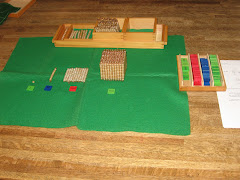Although nothing can take the place of years under the belt, and observations of experienced teachers, I really really wish I had read the book Setting Limits in the Classroom: How to Move Beyond the Classroom Dance of Discipline before I dove head first into my first year of teaching. One particular section in the book is titled "Mistaken Beliefs About Structure", and I must say I possessed all of the following mistaken beliefs: (summarized excerpt from the above mentioned book)
1. Teaching rules is the parents' job.
Reality: In the classroom, teaching rules in the teacher's job, but the parents can help.
What would you think if a parent called you at home one evening to complain? "I can't get Jason to clean up his room," says the frustrated parent. "He knows what he's supposed to do. Would you talk to him?"
Would you think this was a little strange? Aren't parents supposed to be the primary authority figures in the home? ... The same principle applies to the classroom, in which teachers are the primary authority figures.
(As obvious as this may seem, it is quite easy to think of just calling a student's parents instead of getting them to behave yourself. As a lost, inexperienced teacher, calling the parents - or even threatening to contact parents can become an overused crutch and ultimately loses any of its initial effectiveness.)
2. Children should know what I expect.
Reality: Students need time to learn your rules and expectations.
(Just because a student had attended school before and has been in a classroom setting - never assume he/she knows how to behave. Different teachers have different expectations of behavior. It is unrealistic and unfair to assume students know what you expect. Again, this seems obvious in theory; however it is all too easy to forget to communicate what you expect until misbehavior occurs.)
3. I can't afford to take precious time away from instruction.
Reality: You can't afford not to. Pay up front and invest the necessary time in teaching your rules effectively, or do a sloppy job and pay as you go...Effective structure is one of the cheapest and least time-consuming forms of classroom management.
(This is much easier to remember if you realize that you should not just focus on the academic side of the child, but the child as a whole. This is one of the benefits of the Montessori curriculum, there is an emphasis on focusing on the child as a whole.)
4. If I cover my rules thoroughly in the beginning of the year, I shouldn't need to do it again.
Reality: Rules need to be taught, practiced, reviewed, retaught, and practiced some more.
How many complicated lessons do you teach with full mastery in two weeks or less? Not reading, or math, or spelling, or science...Why should it be different with the complicated lesson of teaching classroom rules?
5. Explaining my rules to children should be enough.
Reality: Rules need to be taught with words and actions, not words alone.
6. Children won't take me seriously unless I'm strict.
Reality: Being strict without being respectful will not earn the willing cooperation of most students.
Children respond best when rules are communicated with firmness and respect, but firmness down not mean harshness. Fear and intimidation provide no lasting basis for cooperation.
7. If children hear my rules often enough, the message will begin to sink in.
Reality: Actions speak louder than words.
Imagine that you're a fifth-grade teacher. You've told your students repeatedly that it's not OK to arrive in class late from recess, but day after day the same group of kids shows up late, and nothing happens but the same old lecture. Why should they take you seriously? What would convince them that you are really serious about their prompt arrival?
Now let's say you decide to take a different approach. The next time your students show up late, they see you standing at the door with a stopwatch. You click the watch as the last student enters and announce, "You guys owe me eight minutes - two minutes for every one that you arrived late. You'll be staying in class the first eight minutes of your next recess."
These guys really like recess. Do you think the message will get across? What convinced them - your words? or your effective action?
8. Students resent firm rules and teachers that make them.
Reality: Students respect teachers who establish clear, firm classroom rules, particularly when those rules are communicated in a respectful manner.
When rules are clear, firm, and carried out in a consistent and respectful manner, students know where they stand and what is expected. There is less need for testing.
(This has been my particular weakness. I have always lacked a firmness in my approach. My first year was the most difficult because I lacked the structure necessary to keep the students from controlling the class. Last year I learned more, and I'm hoping this year I can be even more firm. I think I'm starting out that way..it is only the second day of school.)
9. When my students sense that I care, they will cooperate.
Reality: Caring is important, but caring alone is not enough to achieve consistent cooperation.
Caring and firm limits work hand in hand, but caring without firm limits will not earn you the respect of many of your strong-willed students.
10. Male teachers make the best disciplinarians.
Reality: In the classroom, power and authority belong to those who exercise them.
I hope this tid-bit of knowledge can be of benefit to someone; I highly recommend this book for teachers and for parents.
Subscribe to:
Post Comments (Atom)



I think discipline is the hardest thing about being a teacher. I have never been very good at that. Although, most of my teaching experience with kids was at a private elementary school with very strong willed kids! The schools preferred method of discipline was taking away recess time, but I remember several times where students just sat in defiance while I counted of ridiculous times. My last resort was to call in Mrs. Cummings. They always responded immediately to her stare. I don't know how she did it.
ReplyDeleteDiscipline and classroom management are the most important things. You can waste a lot of instruction time if you haven't properly established groundrules as well as routines. I have noticed that since I finished this book I approach the children differently, with more confidence in my role as a respectful authority figure. They listen to me more now than last year. Yay! It's really a learning process, the more years under your belt, the easier it gets.
ReplyDelete